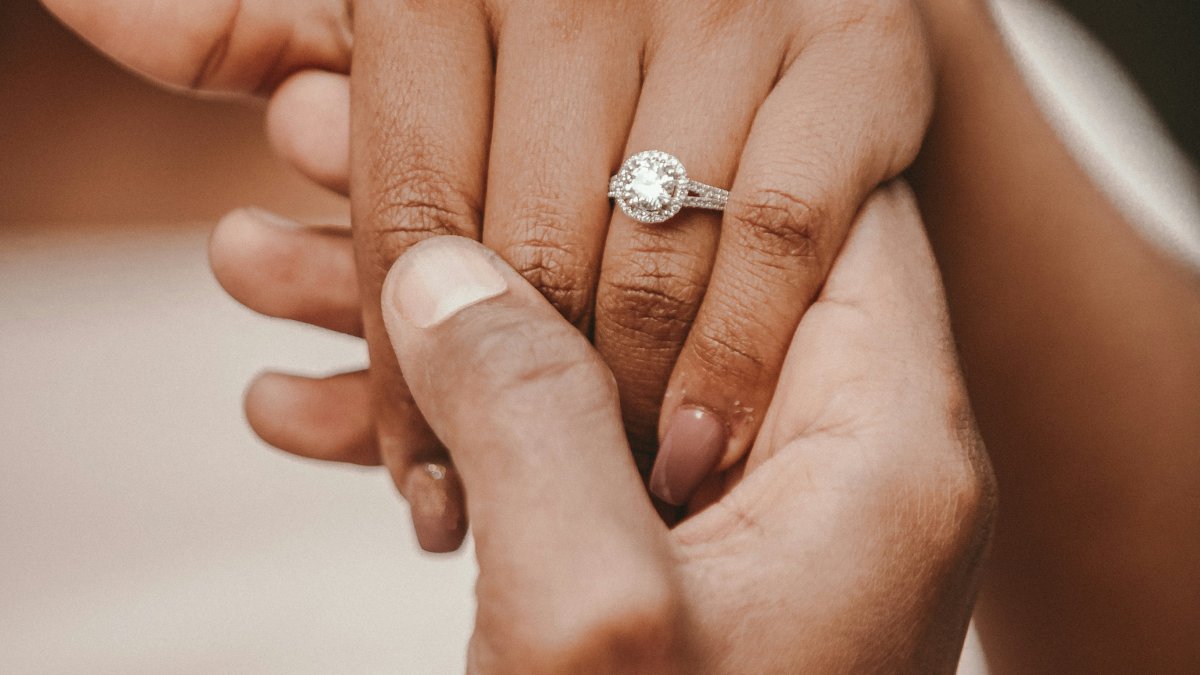
Was Your Proposal Made With A 'Shut Up Ring'? Here's 2 Ways To Tell
If your proposal was a pacifier, you might be in for a tough marriage. Here's how to tell if you've been given a 'shut up ring.'

By Mark Travers, Ph.D. | June 17, 2024
Imagine Emma—she's been in a relationship for several years, and while she's dropped countless hints about getting engaged, her partner remains noncommittal. Frustration builds until one heated argument pushes her to give an ultimatum—commit or it's over. After a short time, her partner presents her with a sparkling engagement ring.
Proposals are often seen as the ultimate symbol of devotion and commitment. However, not all proposals come from a place of genuine intent. Sometimes, a proposal can be a means to soothe a partner and buy more time—a trend known as a "shut up ring."
Marriages initiated with a shut-up ring often don't last long because the partner who presents it lacks genuine commitment. "I have three friends who gave ultimatums to their boyfriends," says a Reddit user, "Two of the marriages lasted slightly over 18 months and the third one lasted about 7 months. Marriage takes work and you just can't go into it, basically being held hostage."
Here are two critical signs that your proposal might fall into this category.
1. The Timing Feels Like a Tactical Move
One of the most telling signs of a "shut up ring" proposal is its timing. It often comes on the heels of a significant argument or after a partner has expressed dissatisfaction with the relationship. In that case, it might be more about alleviating pressure than expressing love. Here's what to look for:
- The suddenness of proposal after conflict. If the proposal follows a period of intense conflict, it might be a way to deflect from unresolved issues. Instead of addressing the root of the problem, the proposal serves as a distraction. This can be particularly evident if the proposal was not previously discussed or hinted at before the conflict.
- Fear of confrontations. If your partner has consistently avoided serious conversations about the future or the state of your relationship and then suddenly proposes, it might be a red flag. Individuals who fear confrontation or are not ready to address deep-seated issues might use grand gestures like proposals to pacify their partners temporarily. People with insecure attachment styles, for instance, are more likely to use avoidance tactics that can lead to a cycle of unresolved conflicts that resurface later, often with greater intensity.
2. Commitment Issues Are Circling Your Relationship
Another significant indicator of a "shut up ring" is the presence of deeper commitment issues within the relationship. This behavior arises when a partner is reluctant to leave their relationship because they've invested significant time and energy into it but hesitate to fully commit because the initial spark has dimmed or their feelings toward the relationship have changed.
"My best friend gave him (her partner) the ultimatum after their 10 year anniversary resulting in a box with a necklace not a ring. He proposed 6 months later. They got married in 18 months and he ended it 2.5 years in. It's been a ride, " confessed another Reddit user. "The unfortunate reality is that he just wasn't passionate about her. Apparently he was at one point. But eventually that faded and he just got comfortable. He's also the kind of dude who lacked the emotional wherewithal to realize he was even giving her a shut up ring. He just went through the motions afraid to end things so he just kept escalating. It's been heartbreaking to watch because she really loved him and would have done just about anything he asked."
Here are signs that your relationship is suffering from commitment issues, according to research:
- Decreased interaction. Participants reported a reduction in the frequency of interactions with their romantic partners during phases of declining commitment, such as spending less time together and having fewer meaningful conversations.
- Relational uncertainty. There has been an increase in references to uncertainty about the relationship, such as constantly questioning the partner's commitment and feeling unsure about the relationship's stability.
- Involvement with alternative partners. As participants' commitment to the relationship declined, they exhibited heightened involvement or attention toward other people, such as noticing subtle signs of interest in others or mentioning past crushes.
Recognizing these signs can help you understand the true intentions behind a proposal. It's essential to have open and honest conversations with your partner about your relationship and future plans.
If you notice these red flags, it might be worth reconsidering the proposal's timing and addressing any unresolved issues before moving forward. A proposal should be a celebration of mutual commitment and love, not a band-aid for underlying problems.
Are grand gestures usually a cover-up in your relationship? Take the Authenticity In Relationships Scale to learn more.
A similar version of this article can also be found on Forbes.com, here, and on PsychologyToday.com, here.
